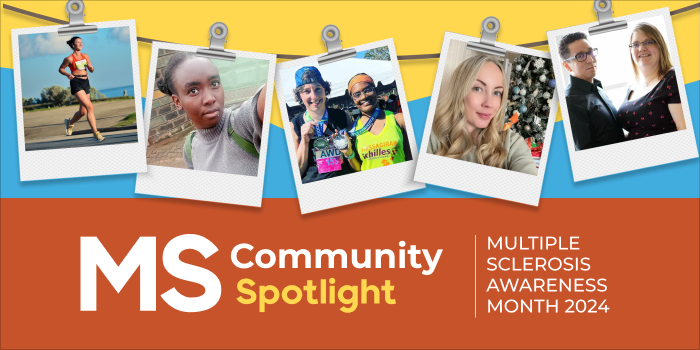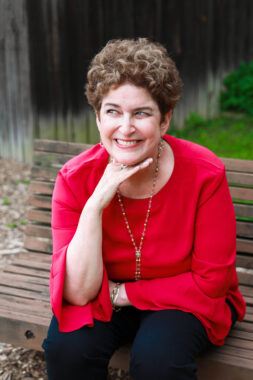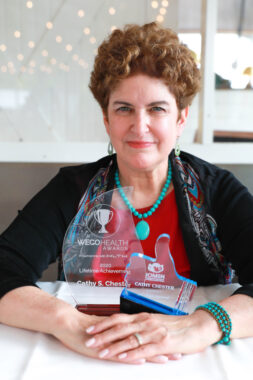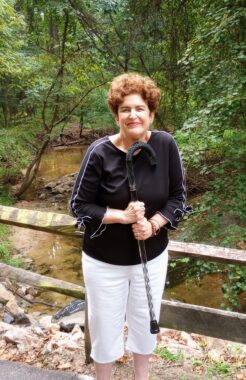Finding hope as I reflect on my MS journey and look to the future


Cathy Chester has been living with MS symptoms for more than 40 years. (Photos courtesy of Cathy Chester)
Day 17 of 31
This is Cathy Chester’s story:
My story with multiple sclerosis (MS) started more than 40 years ago when a car accident left me with a concussion, numb feet, and 16 stitches in my forehead. Doctors concluded the loss of sensation was because my shoes were too tight. At 21, I naively accepted this ridiculous misdiagnosis. With each passing year, I lost more strength and balance in my legs, accompanied by unrelenting fatigue. Finally, in 1986, it became clear that I needed to consult with a neurologist. After a CT scan and a spinal tap (MRIs were in their infancy), it was quickly revealed I had something called multiple sclerosis. Multiple what?

Chester poses with her WEGO Health Lifetime Achievement Award and IOMSN Thumbs Up Award.
At that time, there was no internet to rely on for credible information, no approved MS medications to lean on, and I knew no one with the disease.
I was living in the dark ages of MS.
As if that weren’t bad enough, the medical community prescribed rest, retirement (at age 28!), and no exercise for fear of my rising body temperature causing a flare. If I experienced any symptoms, I had to call the doctor for a course of steroids.
MS changed the trajectory of my life in more ways than I knew. After surviving my first horrifying exacerbation and the side effects of a steroid, I set out to be an advocate for the MS community before terms like “advocate,” “MS community,” and “patient-centric” were ever uttered. I became a leader of an MS support group and wrote articles and letters to the editor for local newspapers, all focused on MS awareness. I also did my best to follow Jane Fonda’s workouts on videotape.
I write about those early days to illustrate how much progress has occurred since my diagnosis. Today, we have choices in which medications to take, which complementary therapies to try, and which trusted sources to follow on the internet, including social media. We can communicate with other patients worldwide and feel less alone and afraid.

Chester uses a Neo-Walk cane while out and about.
Over the years, my work as a certified advocate, speaker, consultant, and award-winning blogger has also blossomed by educating disabled and nondisabled audiences. It’d take too long to list all of my work from the past 37 years, so here’s a small sample:
I caught the eye of Katie Couric, Reader’s Digest, Woman’s Day Magazine, and Harvard Radio. I’ve written for HuffPost, Everyday Health, MS News Today, Health Union, and PatientsLikeMe. Momentum Magazine and NARCOMS both wrote profiles about me.
I won the prestigious Lifetime Achievement Award from WEGO Health and the Thumbs Up Award from the International Organization of Multiple Sclerosis Nurses, or IOMSN.
I recently celebrated my 65th birthday and looked back at my MS journey. With all its peaks and valleys, one word stands out: hope. I’ve always held on to hope for the future of MS. I have great hope that there will be better research, a more inclusive society, and a cure. So let’s keep breaking the glass ceiling on what our community needs and deserves.
In recognition of Multiple Sclerosis Awareness Month in March, the MS Community Spotlight campaign features a series of stories highlighting the real-life experiences of people affected by MS, written in their own words. Follow us on Facebook, Instagram, and Pinterest for more stories like this, using the hashtag #MSSpotlight, or read the full series.






